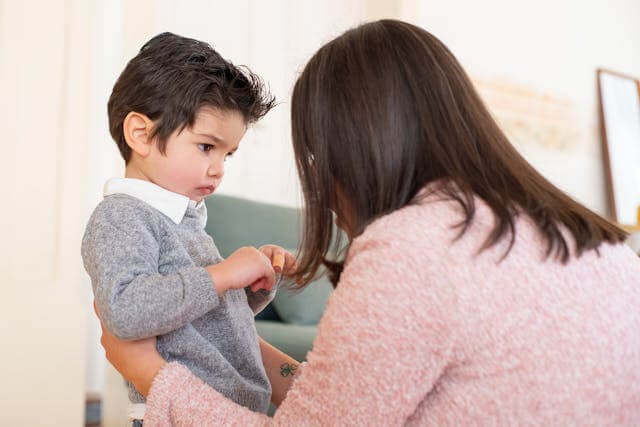You have a toddler for the first time. You’ve surely witnessed other parents with little ones dealing with a sudden eruption by their kid in a shopping center or a restaurant. Maybe you told yourself it would never happen when you had a child. Well, if it hasn’t happened already, it will almost surely still occur. Your toddler’s first public meltdown is part of being a parent. However, how you deal with the event is entirely up to you.
Consider these proactive ways to stem the torrential tide of tears when the public floodgate opens.
Preplan Your Movements With Your Toddler in Mind
This first step is more of a preventive measure than a way to deal with a raging whirlwind already in progress. If you can prevent a meltdown, it’s easier than dealing with one already in progress.
Consider the best time to visit the mall with your two-year-old in tow. Toddlers need 11 to 14 hours of sleep daily, so taking them out in public before their daily nap might encourage a tumultuous tantrum. Likewise, when going to a restaurant as a family, choose a kid-friendly venue with on-site entertainment like a designated play corner to make your children feel comfortable and appreciated — doing so may stave off an unwelcome surprise.
Breathe With Intent
If your toddler has a meltdown, close your eyes and count to 10 — or take deep, controlled, mindful breaths to calm your mind, like during yoga class. In short, do anything that keeps you calm and centered amidst the mayhem. The last thing you want to do is lose your temper and start a multi-generational family hissy fit in public.
Doing so won’t help and will likely only exacerbate the problem. Maintaining your inner peace can help you quickly identify the reason for the meltdown and decide how best to restore calm.
Prioritize Your Love and Connection
Remember where your priorities lie when the meltdown does happen, and it invariably will. They certainly don’t lie with the watching and whispering onlookers, who genuinely aren’t important, or with any personal embarrassment you may be feeling. Focus entirely on your toddler’s needs and lean on the connection and love you have for the tyke to get both of you through the unpleasant occurrence.
At your toddler’s age, having an emotional outburst is likely the only way to tell you something is wrong. As their parent, you should do your best to identify the reason — not in the car later or when you get home — as soon as possible. Tackle the incident on your little one’s level by using your connection to look them in the eye, speak soothingly, and hug them tight. You want to convey to your child that you’ve got this and that everything will be all right. The unspoken emotional bond between parent and child will invariably start calming your toddler.
Find a Quiet Area
When you’re out with your toddler in a mix of the constant hiss of public voices, complex music playing, and bright or flashing lights, don’t discount the chances of a meltdown. Toddlers, especially those whose sensory processes are still developing, can feel anxious or overwhelmed, leading them to express anger in the only way they know — through a violent outburst.
Should this happen in a store, for example, try to move to a quieter section that contains products that you may use to distract them from the reasons for their meltdown and focus their attention on something appealing. For example, a floral section with bright flowers or the toy section, where you can use fluffy toys to turn the tide. If you find a teddy or a Barbie that helps, consider sneaking it into your shopping trolley for later presentation.
Maintain Your Boundaries
While raw, unspoken emotion will generally bring on your toddler’s public volcanic eruption as a form of communication, it’s essential to maintain your boundaries. Boundaries are vital for your child’s self-regulatory development and to teach them respect for others — a foundation for healthy relationships.
Try to use firm but loving language to relay your feelings during the meltdown. However, don’t be too concerned if doing so doesn’t work immediately. More often than not, another method will be more successful during the raging thunderstorm, but once you’ve restored calm, set a boundary by tackling the topic — suggest alternative means for them to make their point next time.
Recognize Your Toddler’s Cry for Help
Understanding the reasons for your growing tot’s meltdown will help you find ways to remedy it sooner. Perhaps, with the relevant knowledge, you can avoid it altogether. If you experience a toddler meltdown, understand you’re not the first and won’t be the last.
ABOUT THE AUTHOR
Mia Barnes is Editor-in-Chief at Mind+Body.
RELATED ARTICLES
Cover photo by Kampus Production

